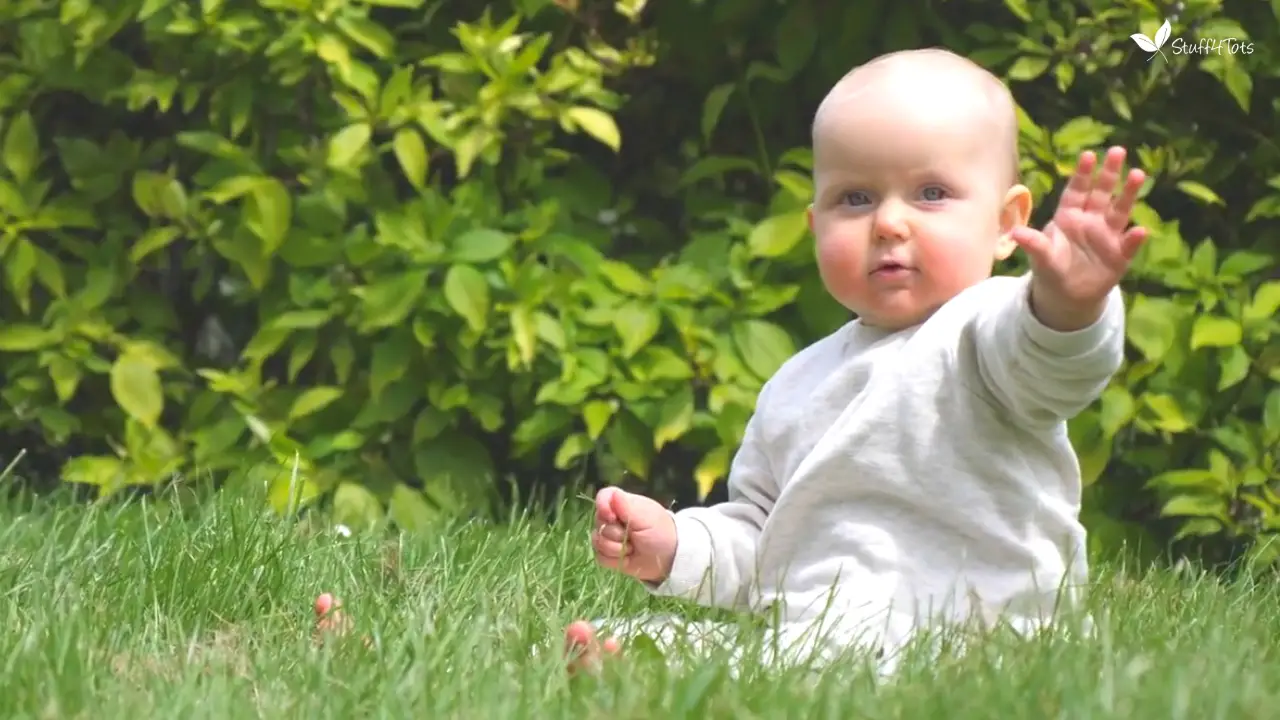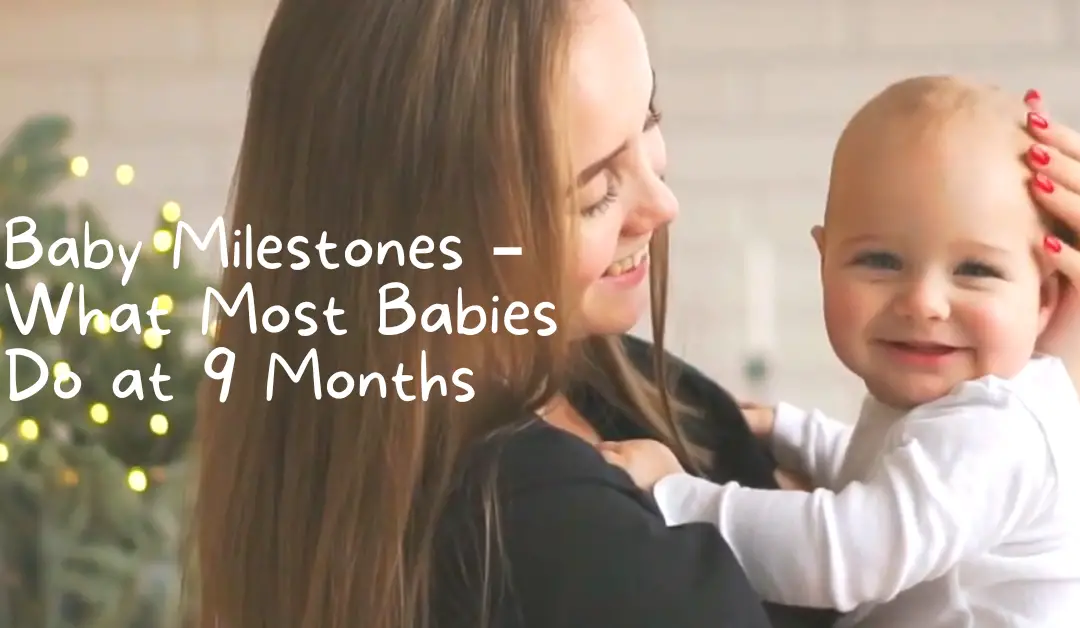Table of Contents
Developmental Milestones
It’s helpful to understand the important clues in your child’s development, like how your little one moves, acts, speaks, learns, plays, and interacts.
There are things most children can do by a certain age.
In today’s article, we’ll be talking about milestones which your child reaches during the ninth month. These milestones are as defined by Centers for Disease Control and Prevention (CDC).
Let’s now explore these first-time actions which are called developmental milestones.
What Can Most Babies Do By Month 9?
First up, let’s look at emotional and social milestones. Your baby:
- Is clingy, shy, or afraid of being around strangers
- Makes facial expressions such as happy, sad, surprised, and angry
- Turns to you when you call his name
- Reaches out for you or cries when you’re leaving
- Giggles or smiles when playing peek-a-boo
Second, communication and language milestones. Your baby:
- Makes different sounds like “baba” or “mama”
- Lifts arms as wanting to be picked up
Third, cognitive milestones. These include thinking, learning, and problem-solving. Your baby:
- Looks for things that he’s dropped out of sight (like a toy or spoon)
- Bangs two objects together
And the fourth, movement and physical development milestones. Your baby:
- Gets to a sitting position by himself
- Moves objects from one hand to his other hand
- Uses his fingers to bring food towards himself
- Sits without any support
You know your baby best.
If you might feel that your baby is not meeting one or more milestones, has lost skills he or she once had, or if your child might have special healthcare needs, please see your pediatrician as early as possible.
During the visit to your pediatrician, it’s important to discuss these things:
- Has your baby lost any skills he or she once had?
- What does your baby like to do?
Please don’t be alarmed if your baby hasn’t quite hit some or all of these milestones by the end of month 9. Human beings are a varied bunch, and we all develop at different rates.
These milestones are “averages”, and some babies will cross them earlier or later than the herd.
There’s no need for worry about milestones in month 9 but there’s no harm in discussing things with your pediatrician if there is anything of concern.
It’s Time for Developmental Screening!
Please remember that at 9 months, your baby is due for general developmental screening. This is as per recommendation by the American Academy of Pediatrics.
Ask your pediatrician about your baby’s developmental screening.
You Play a Great Role in Your Baby’s Learning and Brain Development
You are your baby’s first and best teacher, and it’s you who can help him or her the most with this learning and brain development phase.
Here are some simple activities to try with your baby:
Repeat your baby’s sounds and say simple words using those sounds.
For example, if your baby says “bababa,” repeat “bababa,” then say “book.”
Place toys on the ground or on a play mat a little out of reach and encourage your baby to crawl, scoot, or roll to get them.
Celebrate when she reaches them.
Teach your baby to wave “bye-bye” or shake his head “no.”
For example, wave and say “bye-bye” when you are leaving. You can also teach simple baby sign language to help your baby tell you what he wants before he can use words.
Play games, such as peek-a-boo.
You can cover your head with a cloth and see if your baby pulls it off.
Play with your baby by dumping blocks from a container and putting them back in together.
Play games with your baby, such as my turn, your turn.
Try this by passing a toy back and forth.
“Read” to your baby.
Reading can be talking about pictures. For example, while looking at books or magazines, name the pictures as you point to them.
Limit screen time (TV, tablets, phones, etc.) to video calling with loved ones.
Screen time is not recommended for children younger than 2 years of age. Babies learn by talking, playing, and interacting with others.

Tips and Activities for Baby’s 9th Month
Find out about choking risks and safe foods to feed your baby.
Let him practice feeding himself with his fingers and using a cup with a small amount of water. Sit next to your baby and enjoy mealtime together. Expect spills. Learning is messy and fun!
Ask for behaviors that you want.
For example, instead of saying “don’t stand,” say “time to sit.”
Help your baby get used to foods with different tastes and textures.
Foods can be smooth, mashed, or finely chopped.
Your baby might not like every food on the first try. Give him a chance to try foods again and again.
Say a quick and cheerful goodbye instead of sneaking away so your baby knows you are leaving, even if he cries.
He will learn to calm himself and what to expect. Let him know when you return by saying “Daddy’s back!”
Thoughts
Keep in mind that it’s not exactly when your baby gets to sit up by himself or utters his first words. What’s more important is that they’re progressing with their development.
In our next article, we’re going to discuss baby milestones for 12-month-olds. We look forward to seeing you then!
How’s your 9-month-old doing?
We’d love to hear from you! Let us know in the comments below.
Thanks for stopping by!
Related articles you might also find useful:





